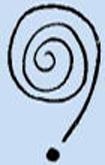 The European Commission, under the auspices of the Greek Presidency and the Hellenic Centre for Infectious Diseases Control, organised the international conference “Scientific Advice, Crisis Management and Media”, held in Athens 9-10 June.
The European Commission, under the auspices of the Greek Presidency and the Hellenic Centre for Infectious Diseases Control, organised the international conference “Scientific Advice, Crisis Management and Media”, held in Athens 9-10 June.
The targeted audience consisted of scientists, journalists, policy makers and citizens’ representatives. The goals were, first, to identify the right practices in presenting science-related risks to the lay public, and second, to discuss the social impact of risk communication under critical circumstances.
After a difficult period of food-related crises (like the “Mad Cow” issue and the OGM controversy) and concurrently with the SARS scandal, the delegates’ agenda focused on the tasks of making stock of the actual situation and indicating the guidelines for future action, as science-related risks are today widely considered frequently run and unavoidable.
The aim of the speeches was to identify ways to deal with crises in a context where the mass media play a very delicate role. Indeed, as any other technological mean, mass media suffer from a congenital ambiguity: when used in the right way they can be extremely useful – on the other hand, when used in the wrong way, they can magnify the proportion of a crisis. And, according to what emerged during the conference, the relationship between mass media and science is not exactly good. The main blame on scientific world was to consider the mass media and journalists as enemies to fight, rather than means to avail of. It was then pointed out that scientists need to deal with mass media structural features, in order to establish fair relationships with them not only during crises (when scientists are forced to address the public), but also in normal situations, as to prevent the consequences of a crisis. Having this purpose in mind, on the first day of the conference the BBC anchorwoman Deborah Hall chaired a workshop concerning how to make scientists acquainted with those skills required to face up cameras when giving a public speech.
Thus, a setting is outlined in which the scientists are urged to hold relationships not only with policy makers, as interested in their scientific advice, but also with media and consequently with the public. The latter factor is important – it was underlined by Stephanie Bird (MIT) – even to ensure an ethical basis to scientifc communication. Indeed, communicating only during a crisis does not let the public know the underlying values that inform both political and scientific processes of decision making. This obviously causes more anxiety and uncertainty among the public when something is going wrong and no surprise then, if a decline in public trust would occur in such a context, as it was widely agreed among the delegates.
School has to play its role as well. The need for scientific education of a constant updating through the promotion of a scientific culture was underlined, so as to give good scientific basis to the next generations.
We are, as it is easily arguable, in a starting phase of a proper scientific communication. Indeed, to deserve such a label, the latter has not to be a single-way flow of information, a top-down process, from scientists/experts to the lay public, as it seems to be now, but rather an open-way process in which all actors have to express their values and points of view. Scientists, mass media, decison makers, NGOs, the public, and all other actors should be able to carry on a dialogue as peers, whenever possible, in order to guarantee a real democratic process. The European Commission, with its Action Plan for Science and Society, is triyng to suit these needs and as well as organising meetings as the one in Athens, it is establishing a network called “SINAPSE” (Scientific INformAtion for Policy Support in Europe), that should operate as a tool facilitating information exchange within the scientific community and other actors concerned in science.
For more informations about the Athens Conference see web http://www.sacrimm2003.gr
For more insights on the Science and Society Action Plan see http://www.cordis.lu/science-society







